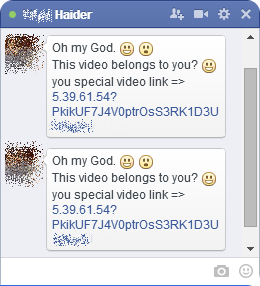LOCAL NEWS — “My Facebook has been hacked. If you received a message from me with a link, do not click on it,” read one Moore County Facebook users page.
“Account has been hacked! I didn’t send a video to anyone! Don’t open and delete,” read another.
On Monday, similar posts filled the social media feed of lots of Lynchburg folks.
The old “sent you a video in Messenger ” scam isn’t new. In one example, the message might state that the “video belongs to you” or “you are in this video.” The message always comes with live link it wants the recipient to click on to see if the video features him or her.

But don’t do it. The link contains malware designed to steal login credentials or infect your computer with malware. Once someone’s account gets hacked, their Messenger starts sending out the malicious messages. If you open it, your account starts sending them. So, it can spread in a small community fairly quickly.
Sometimes, the link will take you to a page outside of Facebook that looks like an official FB login screen, so be diligent about checking URLs.
So what can you do to prevent this from happening to you? One, don’t open video messages you aren’t expecting or didn’t request, even if they come from someone you know. Two, enable two-step authentication, so that even if a hacker does get your credentials, they can’t log in remotely.
Additionally, desktop and laptop users should be wary of any video link that asks you to download a codec, plugin, video update, or other software to view a Messenger video.
If you do receive one of these malicious messages the best thing to do is delete it immediately, and then change your Facebook password. It’s also a good idea to privately contact the person who sent it to you to let them know their account has been compromised.
You should also immediately clear your browsing history and delete all cookies.
To learn more, visit the Hacked Accounts page on the Facebook website by clicking here. •
